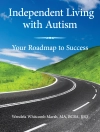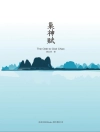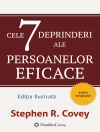‘[This book] is an excellent resource for the diverse practitioners and educators who are involved in this nascent area.’– Cruse Bereavement Care
‘[This] book is innovative and timely, challengingthe reader to think ‘out of the box.’ Sofka, Cupit, and Gilbert provide a framework to explore thanatologyin an online universe while encouraging continuousresearch to adapt to this ever-changing digital world.’– Death Studies
‘Historically we have always employed our foremost technology in the service of the dead. We have used whatever we had at our disposal to mourn, to support, to share memories and to tell stories. Carla J. Sofka, Illene Noppe Cupit, and Kathleen R. GilbertÖ reaffirm that principle reminding us that this new digital world both offers dramatic technologies and creates considerable opportunities to deal with dying, death, and grief. The editors are extraordinarily sensitive to the multiple ways that this new technology has impacted upon the death system or the ways that a society organizes behavior around dying and death. Dying, Death, and Grief in an Online Universe is bound to be a classic.’
Kenneth J Doka , Ph DProfessor, The College of New Rochelle
Senior Consultant, The Hospice Foundation of America
Modern communication technology has profoundly influenced societal practices and views about dying, death, and loss. This text, written for death educators, clinicians, researchers, and students of thanatology, provides current information about ‘thanatechnology, ‘ the communication technology used in providing death education, grief counseling, and thantology research.
The book offers a broad overview of how the communication technology revolution affects individuals coping with end-of-life issues, death-related and non-death loss and grief, and implications of the ‘digital divide’ between those who are knowledgeable about and have access to modern technology, and those who are not. It describes the proliferation of online support groups and social network sites to cope with loss, and mechanisms for the memorialization and commemoration of loss. It also highlights blogging as a mechanism for storytelling and SKYPE as a communication tool during times of loss and grief. The unique issue of disenfranchised grief experienced by online community members is also explored along with ethical issues. Appendices provide guidance regarding the online availability of different types of informational support, tools to evaluate the integrity of online resources, and ethical standards.
Key Features:- Examines the ways in which modern communication technology has revolutionized societal practices and views about dying, death, and loss
- Offers time-tested strategies for providing death education online
- Addresses ethical issues related to availability and use of technology
- Explores the implications of the ‘digital divide’ between technology and non-technology users in relation to issues of death and loss
- Analyzes how technology has shaped and changed thanatology research
Jadual kandungan
‘
Part 1: The Communication Technology Revolution and Implications for Thanatology
Chapter 1: Thanatechnology as a Conduit for Living, Dying, and Grieving in Contemporary Society
Chapter 2: Demographic and Geographic Factors Impacting the use of Technology as a Resource
Part II: Building Online Communities of Support
Chapter 3: Social Networking Sites as Communities of Support
Chapter 4: The Special Case of Youth
Chapter 5: Blogging: New Age Narratives of Dying and Grief
Chapter 6: Internet Communities of Bereavement: Online Support Groups
Chapter 7: Therapeutic Support through Online Counseling
Chapter 8: In Cyberspace, There’s No Such Thing as Disenfranchised Grief
Chapter 9: Virtual Funerals and Memorialization
Part III: Thanatechnology as a Tool for Information and Learning
Chapter 10: Informational Support Online
Chapter 11: Open to Hope: An Online Thanatology Resource Center
Part IV: Death Education
Chapter 12: Creating and Maintaining Safety in the Cyberclassroom
Chapter 13: Thanatology Research
Part V: Thanatechnology: Responsibly Looking Forward
Chapter 14: The Ethics of Thanatechnology
Chapter 15: Dying, Death, Grief, Solace, and Commemoration: What’s now, what’s next?
APPENDICES: information literacy guidelines, including basic criteria for selecting reliable sources; access to web-based resource
‘Mengenai Pengarang
Kathleen R. Gilbert, Ph D, CFLE, FT, is Associate Professor of Applied Health Science and Director of Undergraduate Education, Indiana University, Bloomington, Indiana.












